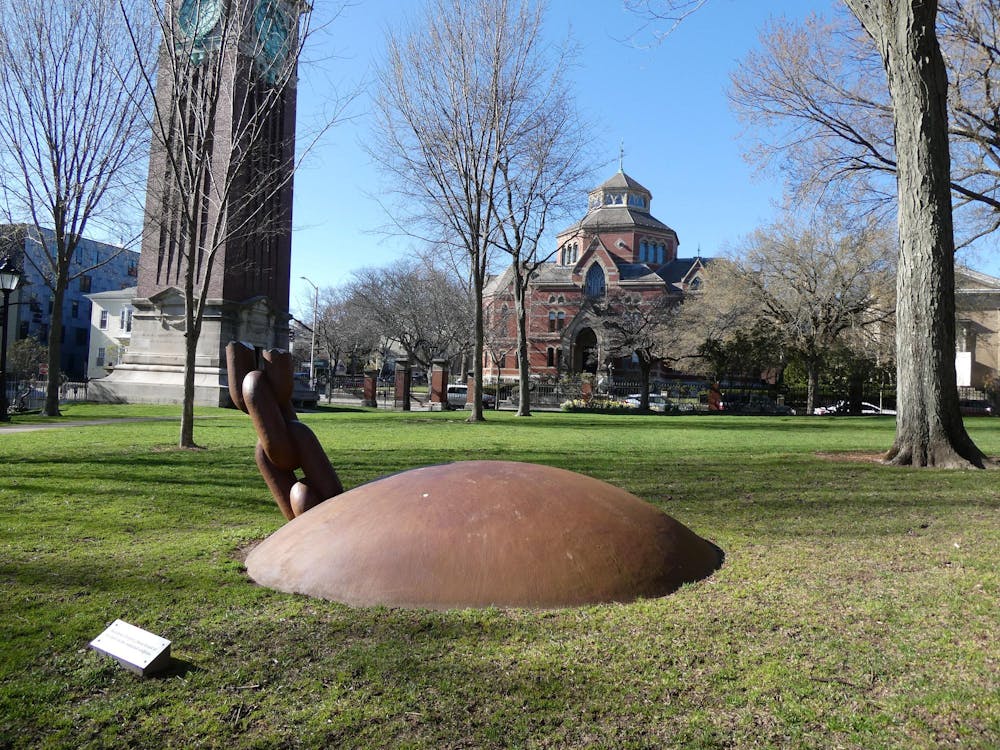On April 3, the University announced the termination of its First Readings program, an initiative aimed at creating a shared summer reading experience for first-year students.
Launched in 2007, the program “provides a common reading experience that invites new students to critically reflect on place and purpose at Brown through primary texts,” according to the University’s website. After reading the selected text, students submit reflections to their first-year advisors and participate in small group discussions during orientation.
“While the experience proved valuable for many participants, data from both students and facilitators suggested mixed levels of engagement,” the announcement reads.
For the past five years, students have been required to read the “Report of the Brown University Steering Committee on Slavery and Justice.” The report, published in 2006, details the University’s connection to the transatlantic slave trade, raises questions regarding reparations and examines the legacy of racial injustice in higher education.
“A single short session during orientation hasn’t served as an ideal environment within which to honor the complexity of the texts selected,” Dean of the College Rashid Zia ’01 wrote in an email to The Herald.
The University intends to feature new collective reading opportunities in the future, with the 2026 Winter Reading Opportunities program serving as one potential option, according to Zia. Featuring smaller groups and longer sessions, this program supplies interested students with recommended texts and encourages them to “convene in conversation with faculty and staff” about these readings, he wrote.
But some first-years who recently participated in the program are skeptical about the change.
Participating in the First Readings program was an enjoyable experience for Arthur Boutry ’28 and Magnus Gehrke ’28.
“It was a great way to talk about something important and to meet new people,” Boutry said in an interview with The Herald, adding that he read the Slavery and Justice report in its entirety.
Gehrke said it was “upsetting” to hear about the program’s retirement. “I felt like I had a productive conversation about (the readings) with my group during orientation,” he wrote in a message to The Herald. “It was an interesting way to learn about the University.”
As an international student from Russia, the program helped Katya Michkovskaia ’28 feel more informed.
It “grounded me in the history of the place I came to,” she wrote in a message to The Herald, adding that the program helped her connect with other first-year students, “even if in an ‘obligatory’ way.”
While students appreciated the informative nature of the program, some expressed concerns regarding students’ engagement with the readings.
For Nate Chen ’28, the “lengthy” nature of the readings made them more challenging to digest.
“I had to go back and read it a couple of times,” Chen said. After the initial seminar, “it was never really brought up again,” he added.
Michkovskaia and Corinne Adams ’28 expressed similar sentiments.
“I’m pretty sure many people have not finished the report,” Michkovskaia said. “The format was not engaging enough.”
“No one seemed interested, unfortunately,” Adams wrote in a message to The Herald, adding that students often seemed “more focused on exploring campus” and “creating friendships” at the beginning of the school year.
But Adams added that understanding the University’s relationship to racial injustice “is an absolute necessity” as a Brown student. “I worry many students will not have the same access to and understanding of the history of Brown’s involvement with slavery.”
Eliminating the Slavery and Justice report as a required reading would mean removing “the most visible way to learn about Brown’s history,” Boutry said.
Even without the formal First Readings program, the digital nature of the report ensures that it remains accessible to the community moving forward, according to Zia.
“Incoming students will still be introduced to the Slavery and Justice Report through the 1stYear@Brown virtual onboarding workshop,” he wrote, adding that the report’s importance transcends “its specific use as a recent First Reading.”





